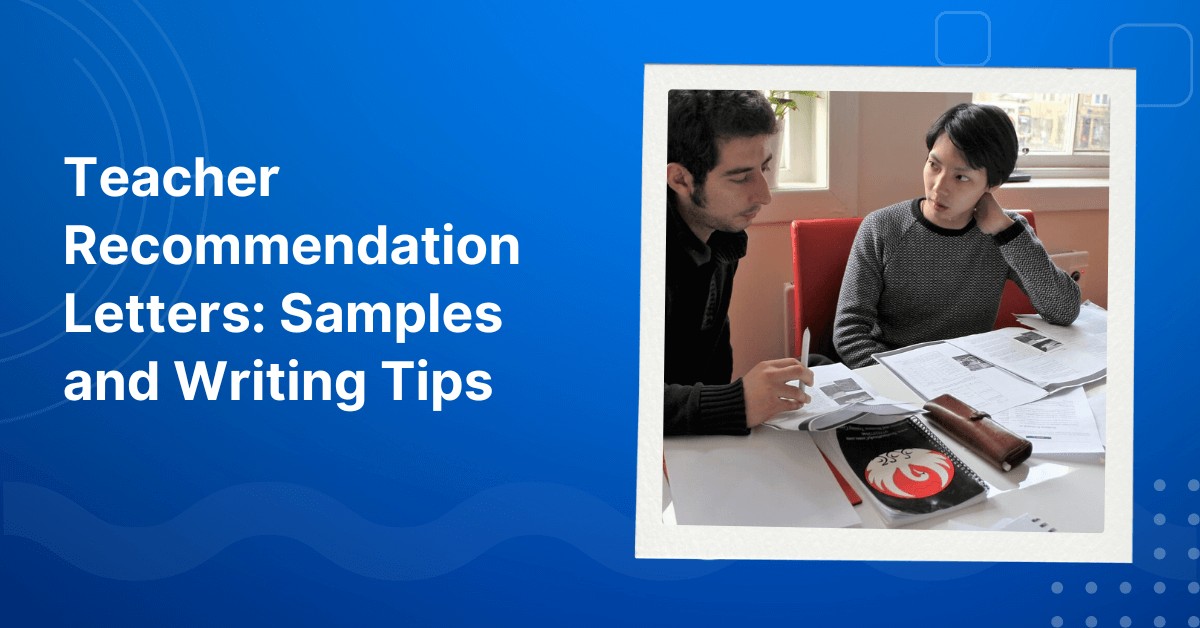If you have a passion for teaching and aspire to make a difference in the lives of students, understanding the different types of teaching degrees available is crucial. In this article, VTJ will provide an insightful overview of ten distinct teaching degrees, guiding you through the steps required to obtain them and embark on a rewarding career in education.
>>>Read more: “What Are Your Salary Expectations?” – 10 Sample Answer
>>>Read more: 35+ Questions to Ask in A Teacher Interview to Impress Employer
What Is A Teacher?

10 Types of Teaching Degrees: How to Get One & Become A Teacher
A teacher is an individual who facilitates learning and imparts knowledge to students. They play a vital role in the education system by creating a supportive and engaging environment that fosters intellectual, social, and emotional growth. Teachers possess a deep understanding of their subject matter and utilize effective instructional strategies to meet the diverse needs of their students. They serve as mentors, motivators, and role models, guiding students towards academic success and personal development.
>>>Read more: Lesson Objectives (Learning Objectives): How to Write in 4 Steps
>>>Read more: Teacher Leadership: 5 Essential Teacher Leadership Skills
What Does A Teacher Do?

There are many kinds of teaching degrees
Teachers have a wide range of responsibilities that extend beyond the classroom. Some key aspects of a teacher’s role include:
- Planning and Delivering Lessons: Teachers design and develop lesson plans, aligning them with curriculum standards and the needs of their students. They deliver engaging and interactive lessons, employing various teaching methods and resources to facilitate learning.
- Assessing Student Progress: Teachers evaluate student performance through assessments, tests, projects, and assignments. They provide constructive feedback and track individual progress to identify areas of improvement and tailor instruction accordingly.
- Creating a Positive Learning Environment: Teachers establish a safe and inclusive classroom environment where students feel valued, respected, and motivated to learn. They promote positive behavior, manage classroom dynamics, and address individual needs to foster a conducive learning atmosphere.
- Individualized Instruction: Teachers recognize that each student has unique strengths, weaknesses, and learning styles. They adapt their teaching strategies to accommodate diverse learners, providing individualized support and differentiated instruction when necessary.
- Collaborating with Colleagues and Parents: Teachers collaborate with other educators, administrators, and parents to ensure the holistic development of their students. They participate in team meetings, parent-teacher conferences, and professional development activities to enhance their teaching practices.
- Continual Professional Growth: Teachers engage in ongoing professional development to stay updated with the latest educational research, teaching methodologies, and technological advancements. They seek opportunities to expand their knowledge and refine their skills to provide the best possible education for their students.
>>>Read more: Leadership Styles in Education: 8 Effective Ways to Lead
What Are The Requirements To Get A Teaching Degree

To obtain a teaching degree, there are certain requirements that aspiring educators must fulfill
To obtain a teaching degree, there are certain requirements that aspiring educators must fulfill. The specific requirements may vary depending on the country or state, as well as the level of education one wishes to teach. Generally, a high school diploma or equivalent is the first prerequisite. Following this, individuals must enroll in a recognized teacher education program at a college or university. These programs typically include a combination of coursework and practical teaching experiences, such as student teaching or internships. The coursework covers various subjects related to education, including teaching methods, curriculum development, child psychology, and classroom management. Additionally, aspiring teachers may need to pass standardized tests to demonstrate their knowledge and competency in their chosen subject area. Background checks and fingerprinting are often required to ensure the safety of students. Finally, some jurisdictions may also require candidates to complete a certain number of hours of professional development or continuing education courses to maintain their teaching license. By meeting these requirements, individuals can acquire the necessary knowledge and skills to embark on a fulfilling career in education.
>>>Read more: 40+ School Principal Interview Questions (And Example Answers)
10 Types Of Teaching Degrees
10 Types Of Teaching Degrees
Associate Degree In Education
An Associate Degree in Education is typically a two-year program offered at community colleges. It provides a foundational understanding of educational theories, teaching strategies, and classroom management. Students in this program learn about child development, educational psychology, and effective teaching methods. This degree can serve as a stepping stone towards a bachelor’s degree in education or can qualify graduates for entry-level positions as teacher assistants or paraprofessionals.
>>>Read more: 13 Types of Students in the Classroom and How to Deal with Them
Bachelor’s Degree In Early Childhood Education
This is a teaching degree focused on the education and development of young children, typically from birth to age eight. This degree program covers topics such as child development, early learning theories, curriculum design for young children, and age-appropriate teaching methods. Graduates of this program can work as preschool teachers, kindergarten teachers, or early childhood educators in various settings, including public and private schools, childcare centers, and Head Start programs.
Bachelor’s Degree In Elementary Education
A Bachelor’s Degree in Elementary Education prepares individuals to teach a wide range of subjects to students in grades K-6. This degree program covers topics such as curriculum development, instructional strategies, classroom management, assessment techniques, and child psychology. Students learn how to create engaging lesson plans, differentiate instruction for diverse learners, and foster a positive learning environment. Graduates of this program can pursue careers as elementary school teachers in public or private schools.
>>>Read more: How to Teach Writing Skills to Students Effectively in 8 Simple Steps
Bachelor’s Degree In Secondary Education
A Bachelor’s Degree in Secondary Education focuses on preparing individuals to teach students in grades 7-12. Students in this program choose a specific subject area, such as math, science, English, or social studies, and take courses related to both their chosen subject and teaching methods. They learn how to develop lesson plans, deliver effective instruction, assess student learning, and manage a secondary classroom. Graduates of this program can pursue careers as middle school or high school teachers in their chosen subject area.
Bachelor’s Degree In Special Education
A Bachelor’s Degree in Special Education equips individuals with the knowledge and skills to work with students who have disabilities or special needs. This degree program covers topics such as inclusive education, special education laws and regulations, assessment and intervention strategies, and individualized education plans (IEPs). Students learn how to create inclusive and supportive learning environments, adapt curriculum materials, and provide individualized instruction to meet the unique needs of students with disabilities. Graduates of this program can work as special education teachers in various educational settings.
>>>Read more: 10+ Strategies of How to Teach Reading Comprehension in the Class
Master’s Degree In Curriculum Design
A Master’s Degree in Curriculum Design focuses on designing and developing effective curriculum materials and instructional strategies. This degree program explores theories of learning, curriculum development models, assessment methods, and the integration of technology in curriculum design. Students learn how to analyze educational needs, design curriculum frameworks, develop learning objectives, and create engaging instructional materials. Graduates of this program can work as curriculum specialists, instructional coordinators, or curriculum designers in schools, districts, or educational publishing companies.
Master’s Degree In Reading
A Master’s Degree in Reading prepares educators to specialize in teaching reading and literacy skills. This degree program covers topics such as phonics instruction, reading comprehension strategies, literacy assessment, and interventions for struggling readers. Students learn how to diagnose reading difficulties, design effective reading instruction, and promote literacy development across different grade levels and content areas. Graduates of this program can work as reading specialists, literacy coaches, or interventionists in schools or literacy organizations.
>>>Read more: What Is a Teaching Philosophy Statement? (& Examples)
Master’s Degree In Instructional Design
A Master’s Degree in Instructional Design focuses on creating effective instructional materials and methods. This degree program explores instructional theories, multimedia design, e-learning, and the use of technology to enhance learning experiences. Students learn how to analyze learning needs, design instructional materials, develop interactive multimedia resources, and evaluate the effectiveness of instructional interventions. Graduates of this program can work as instructional designers, e-learning specialists, or instructional technologists in educational institutions, corporations, or government agencies.
Educational Specialist Degree In Educational Leadership
An Educational Specialist Degree in Educational Leadership is designed for educators who aspire to leadership roles in schools or districts. This degree program provides advanced knowledge in areas such as educational administration, school law, curriculum development, instructional leadership, and educational policy. Students learn about effective leadership practices, strategic planning, personnel management, and community engagement. Graduates of this program can pursue careers as school principals, district administrators, curriculum coordinators, or educational consultants.
>>>Read more: 5 Types of Teaching Styles (Their Pros & Cons)
Doctoral Degree In Education
A Doctoral Degree in Education is the highest level of education degree in the field of education. This advanced degree is for individuals seeking expertise in research, teaching at the university level, or leadership positions in educational institutions. Doctoral programs in education typically involve in-depth study, original research, and the completion of a dissertation on a field.
Questions To Ask Before Choosing A Teaching Degree

Questions To Ask Before Choosing A Teaching Degree
How Many Years Do You Want To Be In School?
Consider the length of time you are willing to invest in your education. Associate degrees typically take two years, bachelor’s degrees take four years, master’s degrees take one to two years, and doctoral degrees can take several years to complete. Determine the level of education you are comfortable pursuing based on your career goals and personal circumstances.
Do You Want To Work With Students In A Classroom Or In An Administration Position?
Reflect on whether you prefer working directly with students in a classroom setting or if you are more interested in administrative roles such as school leadership, curriculum development, or educational policy. This will help you choose a degree that aligns with your career aspirations.
Would You Like To Learn More About Technology?
Considering the increasing role of technology in education, it’s important to assess your interest in incorporating technology into your teaching practice. Some teaching degrees offer specialized courses or concentrations in educational technology, equipping you with the skills to effectively integrate technology into the classroom.
Do You Want To Focus On Older Or Younger Students?
Determine whether you have a preference for working with older students (secondary education) or younger students (early childhood or elementary education). Each age group has its own unique characteristics and teaching approaches, so choose a degree program that aligns with your preferred age group.
>>>Read more: 21+ Best Classroom Management Books for Teachers
How Long Does It Take to Become a Teacher?

The length of time it takes to get a teaching degree can vary depending on several factors
The length of time it takes to become a teacher can vary depending on several factors, including the level of education you want to teach and the specific requirements of your chosen teaching program. Here are some general guidelines:
- Bachelor’s Degree: Typically, it takes around four years to complete a bachelor’s degree in education or a related field. This degree is often a requirement for becoming a licensed teacher.
- Teacher Certification: After completing a bachelor’s degree, you may need to obtain a teaching certification or license. The process for certification varies by state or country, but it usually involves additional coursework, exams, and a period of supervised teaching experience, such as student teaching. This process can take an additional one to two years.
- Master’s Degree: Some teachers choose to pursue a master’s degree in education or a specialized field of teaching. A master’s degree can take an additional one to two years to complete, depending on the program and whether you attend full-time or part-time.
>>>Read more: 22+ SMART Teacher Goals Examples in 2023
How Much Does It Cost To Get A Teaching Degree?

The cost of obtaining a teaching degree can vary significantly depending on various factors
The cost of obtaining a teaching degree can vary significantly depending on various factors, including the type of institution you attend (public or private), whether you are an in-state or out-of-state student, and the specific program you choose. There are some cost considerations:
- Tuition: Tuition fees can vary widely depending on the institution and program. Public universities generally have lower tuition rates for in-state students compared to out-of-state or private institutions. Tuition costs can range from a few thousand dollars per year to tens of thousands of dollars per year.
- Additional Fees: In addition to tuition, there may be additional fees associated with your teaching degree, such as technology fees, lab fees, or student organization fees. These costs can vary depending on the institution and program.
- Books and Supplies: You will also need to budget for textbooks, classroom materials, and other supplies required for your coursework. The cost of books and supplies can vary depending on the program and courses you take.
- Living Expenses: Consider the cost of living in the area where you plan to attend school. This includes housing, food, transportation, and other personal expenses. The cost of living can vary significantly depending on the location.
>>>Read more: How to Teach Critical Thinking Skills to Students
Becoming a teacher is not just about imparting knowledge; it is about inspiring and shaping the minds of future generations. It is a noble profession that requires dedication, patience, and a genuine love for learning. By obtaining a teaching degree and continuously honing your skills, you can embark on a fulfilling career that positively impacts the lives of countless students, helping them unlock their full potential and become lifelong learners.
Are you facing difficulties in finding and securing teaching positions in Vietnam? Are visa procedures causing you trouble? Feeling overwhelmed and directionless upon your arrival in Vietnam for teaching assignments? Don’t worry, VTJ’s English Teaching Placement in Vietnam (EPIV) Program 2024 provides comprehensive support to solve ALL the matters.
👉👉👉 Click HERE to request free consultation





